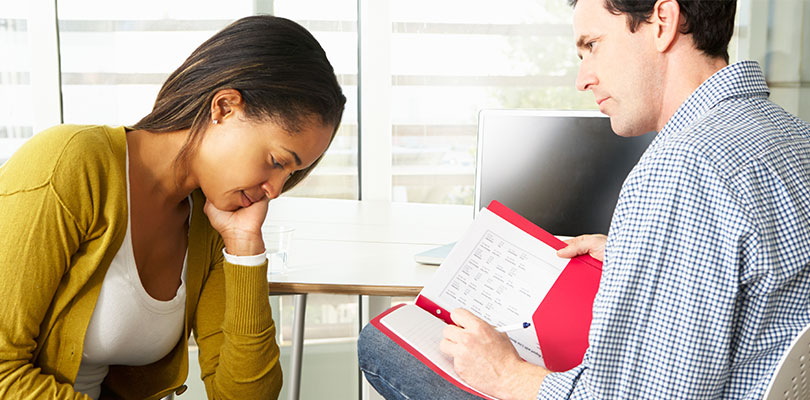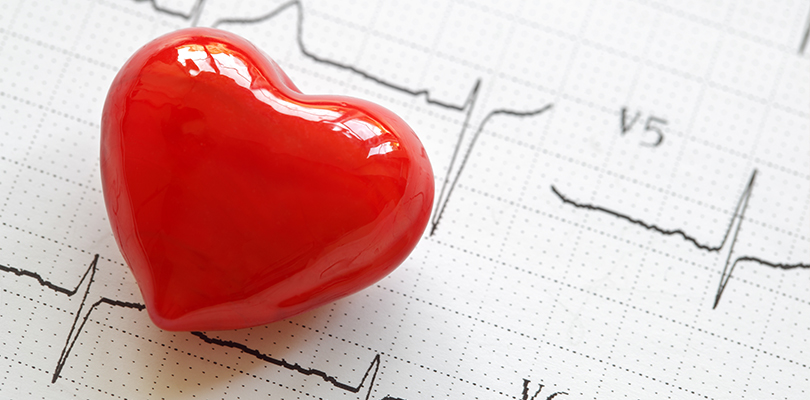Photo Credit: monkeybusinessimages / iStockPhoto.com
Understanding the Types of Therapy and How They Can Help
Anxiety is not confined to one diagnosis alone, but rather covers a broad spectrum of several that all have similar symptoms. Having an anxiety disorder can be extremely challenging to go through, and you may often feel vulnerable and alone.
Types of anxiety include generalized anxiety disorder (GAD) (which usually entails feeling anxious or worried about multiple situations for more than six months), social anxiety (related to going to social events or seeing other people), and panic disorder (which involves multiple panic attacks which may be due to environmental stressors or may just happen without warning).
Considering Therapy
Therapy across the diagnoses may range slightly, but there are similar trends running through. Therapy can help in many ways, and it is important to try and consider approaching it, even if you are taking medication.
While medication, such as benzodiazepines or beta-blockers, can address the symptoms of anxiety, therapy can often help to address the root cause and assist you in coming to terms with it. Therapy can also help you assess yourself so you recognize the signs of anxiety and put better coping mechanisms into place.
As with all psychiatry, early intervention tends to have the best outcome, so it is very useful to be able to recognize your warning signs. There are several kinds of therapies that can help you manage your symptoms and will help make your anxiety easier to deal with.
Types of Therapies
Cognitive Behavioral Therapy
One of the primary ways anxiety is treated is through the use of cognitive behavioral therapy (CBT). CBT takes the way a patient perceives a situation that might cause them to feel anxious, assesses the behaviors they use initially, and asks the patient to challenge these thoughts and behaviors so they replace them with stronger coping strategies.
For example, you may be facing a test in school or a deadline at work, and this could be causing you anxiety. CBT uses behavioral experiments to practice imagining what might happen in that situation if you did not achieve perfect results, and to try and address the negative ways in which you might think or feel.
Exposure Therapy
Another way anxiety is treated is through exposure therapy. This therapy works by making you confront the situations or thoughts that make you anxious, and take you through step by step until you do not feel the same way about them anymore.
A dislocated shoulder occurs when the upper arm bone is forced out of the shoulder joint's socket. Find out more about dislocated shoulder injuries here.
Exposure therapy can be extremely difficult at times, and may not be for everybody as it can result in heightened feelings of panic.
One example of exposure therapy could be if someone was particularly afraid of flying. The therapy could consist of steps such as researching the flight, booking the flight, going to the airport, and finally getting on the plane. It is important to take exposure therapy slowly, and with the guidance of a professional, as there is the possibility of symptoms worsening if the wrong approach is taken or if it is attempted too quickly.
Traditional Counseling
Traditional counseling (also known as talking therapy) can also be very beneficial in the treatment of anxiety. Counseling may help you find and address the root of what is causing your symptoms; once you have faced the issue, you may find life becomes much easier to cope with.
Counseling can take time to achieve results, so it is important to make sure you have patience when going through this sort of treatment. It will also encourage you to look at situations differently and assess why a certain situation makes you feel anxious.
Self-Help Is Important
There are many ways you can help yourself if you suffer with anxiety, such as regular exercise like walking or jogging for a minimum of 30 minutes per day. If your anxiety is related to going outside or seeing other people, this could also help form part of your exposure therapy.
Self-calming methods such as practicing yoga or meditation can also be very beneficial, as they encourage you to be aware of your body and help you get back in touch with yourself. Although at times it is impossible to avoid stress, minimizing it as best you can in your life may also help avoid some of the symptoms of anxiety you may be feeling.
Take things slowly and remember to try and keep track of the situations that may cause you to feel anxious.
Education is a key aspect in helping yourself through anxiety, and may help to strengthen your therapy. Learning about what is happening during an anxiety attack, or even having a look into self-help techniques, can be extremely beneficial in managing your own symptoms.
Finding a Support System
It is also important to teach those around you about what you might be going through, and to ask them for help in times of need so they can provide a strong support network.
Seeking out groups in your area may have a positive impact, as you can connect with people who are in similar situations to you and form strong bonds with them. Groups may also be able to offer you some formal therapy, or assist you in finding the correct type of support for your situation.
You may feel reluctant to seek help or start treatment, but it is important to realize just how useful therapy can be in assisting you with potentially difficult situations.
Try and approach therapy with an open mind and give it some time, even if you decide eventually it is not for you. Medical professionals are trained to help people with anxiety, and will have helped many people in similar situations to the ones you find yourself in.
Remember you are not alone in the way you are feeling, and many others have either gone through anxiety, or are currently going through it.







